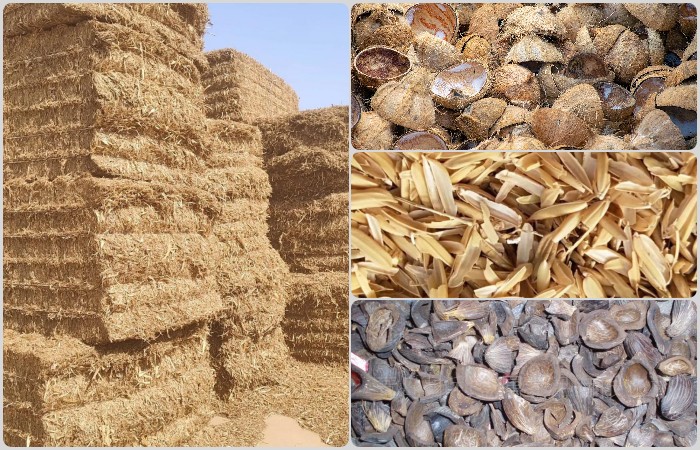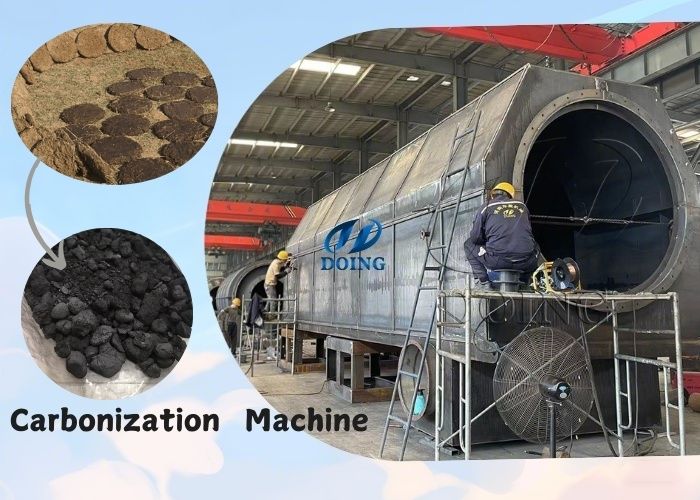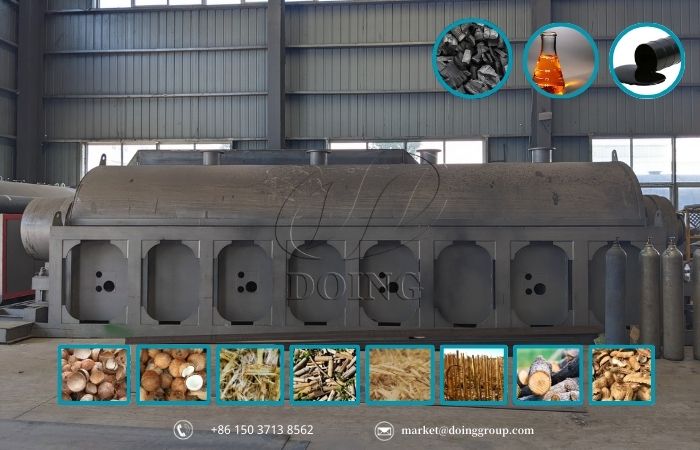 WhatsApp
WhatsApp

Environmental Protection Equipment Manufacturer

Environmental Protection Equipment Manufacturer
The best feedstock for biochar production depends on its availability, carbon content, and ease of processing. High-quality biochar raw materials generally share several common characteristics: high carbon content, suitable density, and a reasonable ash content. Biomass rich in lignin and cellulose is generally preferred because it produces high-quality, stable biochar with good porosity and carbon retention.
Wood waste, including wood chips, bark, and sawdust, is one of the most common feedstock for biochar production. Biochar produced from wood-based raw materials typically has a high porosity and often produces biochar with a well-defined pore structure. These waste materials are not only abundant but also have a high carbon content, making them suitable for producing high-quality biochar.
Agricultural waste, such as rice husks, corn stover, and fruit shells (such as coconut shells, cashew shells, and palm shells), is also a common choice for biochar production. These raw materials are widely available and relatively low-cost.
 Agricultural waste raw materials for biochar production
Agricultural waste raw materials for biochar production
Crop straw is an ideal biochar feedstock, and the converted biochar contains a high concentration of mineral nutrients. Using straw to produce biochar not only effectively reduces agricultural waste accumulation but also improves soil fertility and enhances the sustainability of agricultural production.
Forestry waste, such as wood, branches, and bamboo, is also an important raw material for biochar production. These wastes are typically rich in organic matter, making them suitable for efficient conversion into biochar. Using forestry waste not only contributes to environmental protection but also produces biochar with a fine pore structure and high adsorption capacity.
Animal manure is a rich biochar raw material. After proper treatment, the organic matter in manure can be converted into high-carbon biochar, which has excellent adsorption properties and soil-improving properties. Using animal manure as a raw material for biochar production allows for the resourceful utilization of waste.
 Animal manure biochar carbonization machine
Animal manure biochar carbonization machine
Food waste, such as fruit and vegetable peels and food scraps, can also become high-quality feedstock for biochar production after proper treatment. These wastes are rich in organic matter and carbon sources, which can be converted into valuable biochar during the carbonization process, thus having strong environmental benefits.
It's important to note that the moisture content of the raw materials affects biochar production efficiency. Excessively moist feedstock requires additional pretreatment. To ensure efficient pyrolysis and maximize biochar yield, pre-processing such as drying and crushing are typically necessary. The feedstock must meet the following physical conditions:
Particle size ≤ 30 mm (larger particles impair uniform heating and reduce carbonization efficiency)
Moisture content ≤ 15% (higher moisture content increases energy consumption and reduces biochar quality)
Furthermore, feedstock with low ash content and few contaminants (such as sand, plastic, and soil) is also preferred, as it extends the life of the carbonization reactor and improves the purity of the biochar product. In summary, dry, clean, and small-sized lignocellulosic biomass is ideal for biochar production.
When selecting a biochar feedstock, consider the following: local availability, transportation costs, pretreatment requirements, and the intended use of the final product. Choosing the right feedstock not only directly impacts yield and energy efficiency, but also the quality of the final biochar, which is crucial for its applications in soil improvement, carbon sequestration, and pollution control.
 DOING biochar production equipment for various raw materials
DOING biochar production equipment for various raw materials
DOING's biochar production equipment can flexibly handle a variety of raw materials, ensuring efficient production and high-quality products. Whether it's wood waste, crop straw, animal feces, or food waste, our biochar production equipment offers comprehensive support. If you're considering selecting a suitable feedstock for biochar production, please feel free to contact us. Our professional team will provide the best advice and solutions tailored to your specific needs.